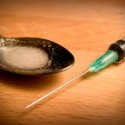‘The big struggle is coping with life’
How can a 16-year-old be an alcoholic? Maybe it’s just a phase. She’s probably had too much to drink at last night’s party and feels miserable. That’s all. Alcoholic is certainly not a word. With thoughts like these flitting through my mind, I catch up with Shriya (name changed); young, confident and pretty, she seems as normal as any teenager. With one exception, she is currently the youngest member of Alcoholics Anonymous’s Bangalore chapter.
With a few superficial introductions past us, I ask her the first question that’s been nagging me: “When did you have your first drink?” Shriya goes back in time to a night about four years ago: “I stole alcohol from my dad’s stash and went up to the terrace and downed it.”
Were you just curious? I inquire. “No, I was mad at my dad because he’s an alcoholic. So through my class 7 and class 8, I drank in the nights. And if my parents found the booze level to have diminished, I’d say I poured it in the sink, because I didn’t want daddy to drink.”
Then came a stint of relative sobriety, where she got back to studying and tried to stay away from drinking, until…”college just sort of brought it all back”, she confesses. But how does Shriya know that she’s different from a normal college-goer who likes to grab a drink once in a while.
“You just know. I am completely aware that I am different from other drinkers. Once you are in college, people drink to socialise, but with me, all my thoughts are about the next drink, I am preoccupied with it.”
She gives a closer view of her fixation: “I go to parties to drink. I always lie to my friends about what drink I am on. If I am on my eighth glass, I’ll say it’s just my third. After drinking, my friends perhaps just go home and sleep, but I have a bottle hiding somewhere. Just so I am not found out at home, I start drinking early on weekends, and a lot of my drinking also happens in my room. There are so many times that I’ve woken up in autos with no memory of how I got there or where the auto is headed. I would have bruises on my body and not know how I got them.”
It is only natural that Shriya’s college life is affected by her addiction. She says that she is crabby and irritable most days, as she’s nursing hangovers. She admits to having walked into class after a shot or two on occasion.
For Shriya, the self-awareness of being an alcoholic came when Alcoholics Anonymous (AA) was conducting a workshop in her college. “I first approached them for some help for my father. But I heard one person talking about how he overcame his addiction and I could completely identify with his struggle and hopelessness. It was almost like he was reading my mind. It’s really not about how old you are. When you have that drink in front of you, your equation with it is just the same. The thoughts in your mind and your struggle to not down it are identical.”
Now, as part of the first women-only AA meetings in the city, she says, “A women-only group definitely gives you more freedom to be open. Also there are women from all age groups here. There is a 28-year-old girl in the meetings who has been sober for 11 years now. She quit drinking at 17, and the fact that there are so many people who have been sober for years gives encouragement.”
She also feels that a support group is more likely to relate to your struggle. “The bigger struggle isn’t with a substance, it’s coping with life. You can’t just keep thinking about how not to stop drinking, but also what else to make of your life.”
But does her family know any of her story? “No way! Just to test the waters I told my mother that I had a breezer and she completely freaked out. So it’s not a good idea”, she says, laughing.
For other teenagers struggling like her, she has a word of advice. “The start is to admit you have a problem and ask for help. And that’s exactly what I did,” she says with a wisdom much beyond her years.
source: Daily News & Analysis
